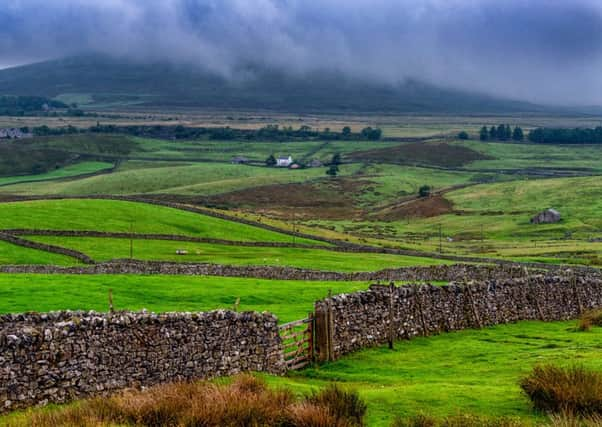Yorkshire Dales audit planned to prove the value of environmentally-minded upland farms


In the next few years, National Park bosses hope that farmers will have taken great strides towards meeting a series of ambitious new environmental targets agreed by authority members this week as part of a five-year management plan for the National Park.
Those objectives involve the Yorkshire Dales National Park Authority and its partners working with farmers to restore and manage landscape-scale mosaics of priority habitats, such as ensuring that all blanket bog in its nationally and internationally important wildlife sites is in a ‘recovering’ condition by 2024.
Advertisement
Hide AdAdvertisement
Hide AdOther aims are to maintain stable or rising populations of 90 per cent of priority species by 2026, including ‘red-listed’ upland birds, and for at least the same proportion of Dales rivers to achieve ‘good ecological status’ by 2027.
In striving towards these targets, the National Park wants to demonstrate the value of upland farming, and to do so explicitly through an audit of the environmental gains that farmers achieve over the coming years.
At the same time, the National Park wants to help farmers position themselves to prosper under a new government regime for agriculture post-Brexit.
Whitehall’s plans for a “Green Brexit” include phasing out direct support payments to farms and replacing them with a system whereby farmers are paid for “public goods”, such as better air and water quality, improved soil health, higher animal welfare standards, public access to the countryside and measures to reduce flooding.
Advertisement
Hide AdAdvertisement
Hide AdThe National Park is currently trialling a government-funded scheme that sees a small group of farmers receive payments based on how much their land management methods boost wildlife.
Helen Keep, senior farm conservation officer at the Yorkshire Dales National Park, said: “We want to make it clear that the uplands can produce what the Government is after and the audit will look at the cost of delivering that.
“We have one of the most heavily ‘designated’ parks in the country with lots of SSSI (Sites of Special Scientific Interest) and we have lots of opportunities to deliver on a whole range of public goods.”
The role of farmers in the environmental management of the Yorkshire Dales’ cherished landscapes is “critical”, she said.
Advertisement
Hide AdAdvertisement
Hide Ad“We don’t own a lot of land within the National Park, only about one per cent of the total area. The vast majority is privately owned so we need to work with those people to meet our overarching objectives as a National Park authority.”
According to Ms Keep, the very character of farming in the Yorkshire Dales will be at stake when farm payments are increasingly linked to environmental gains.
“The Government has said there will be people that go by the wayside but we don’t want to necessarily see that, we want to retain as many farm holdings as possible,” Ms Keep said.
“Farmers are at the heart of the community as much as anything else and if we lost a significant amount of farmers and their families it would be catastrophic for the rest of the community in the National Park.”
Advertisement
Hide AdAdvertisement
Hide AdOther targets in the National Park management plan are to work towards 70 per cent of all woodland being in active management by 2023, to deliver landscape-scale natural flood management projects in its river catchments and produce an online habitat network map to help farmers develop connected, climate-resilient habitats.
The National Park also wants the incomes of sustainable farm businesses in the Dales to match the national average wage, and for there to be the equivalent of 3,250 full-time jobs in the sector by 2025.